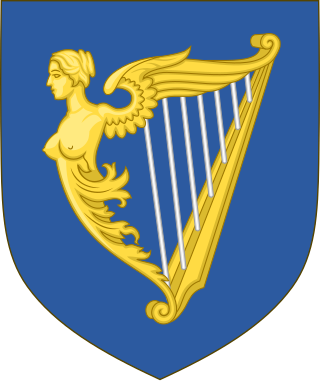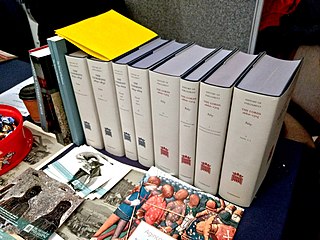This is a list of members of the Irish House of Commons between 2 July 1790 and 11 July 1797. There were 300 MPs at a time in this period.


This is a list of members of the Irish House of Commons between 2 July 1790 and 11 July 1797. There were 300 MPs at a time in this period.



The Irish House of Commons was the lower house of the Parliament of Ireland that existed from 1297 until the end of 1800. The upper house was the House of Lords. The membership of the House of Commons was directly elected, but on a highly restrictive franchise, similar to the unreformed House of Commons in contemporary Great Britain. Catholics were disqualified from sitting in the Irish parliament from 1691, even though they comprised the vast majority of the Irish population.
In the United Kingdom, the boundary commissions are non-departmental public bodies responsible for determining the boundaries of parliamentary constituencies for elections to the House of Commons. There are four boundary commissions: one each for England, Scotland, Wales and Northern Ireland.

Lagan Valley is a parliamentary constituency in the United Kingdom House of Commons.
Tralee was a constituency in Ireland of the Parliament of the United Kingdom, returning one Member of Parliament (MP). It was an original constituency represented in Parliament when the Union of Great Britain and Ireland took effect on 1 January 1801. The borough constituency continued to be represented until it was disfranchised in 1885.

In the United Kingdom (UK), each of the electoral areas or divisions called constituencies elects one member to the House of Commons.

The 1830 United Kingdom general election was triggered by the death of King George IV and produced the first parliament of the reign of his successor, King William IV. Fought in the aftermath of the Swing Riots, it saw electoral reform become a major election issue. Polling took place in July and August and the Tories won a plurality over the Whigs, but division among Tory MPs allowed Earl Grey to form an effective government and take the question of electoral reform to the country the following year.

County Dublin was a parliamentary constituency in Ireland, which returned two Members of Parliament (MPs) to the House of Commons of the Parliament of the United Kingdom.

North Antrim was a constituency of the Northern Ireland House of Commons.
Londonderry City was a parliamentary constituency in Ireland. It returned one Member of Parliament (MP) to the United Kingdom House of Commons, elected by the first past the post voting system.

In the United Kingdom, a member of Parliament (MP) is an individual elected to serve in the House of Commons, the lower house of the Parliament of the United Kingdom.
National University of Ireland (NUI) is a university constituency in Ireland, which elects three senators to Seanad Éireann, the senate of the Oireachtas. Its electorate is the graduates of the university, which has a number of constituent universities. It previously elected members to the House of Commons of the United Kingdom (1918–1921), to the House of Commons of Southern Ireland (1921) and to Dáil Éireann (1918–1936).
Dublin University is a university constituency in Ireland, which elects three senators to Seanad Éireann, the senate of the Oireachtas. Its electorate comprises the undergraduate scholars and graduates of the University of Dublin, whose sole constituent college is Trinity College Dublin, so it is often also referred to as the Trinity College constituency. Between 1613 and 1937 it elected MPs or TDs to a series of representative legislative bodies.
Antrim was a borough constituency which elected two MPs to the Irish House of Commons, the house of representatives of the Kingdom of Ireland.
Ards was a constituency of the Parliament of Northern Ireland.

Belfast Bloomfield was a constituency of the Parliament of Northern Ireland.
East Down was a constituency of the Parliament of Northern Ireland.

The History of Parliament is a project to write a complete history of the United Kingdom Parliament and its predecessors, the Parliament of Great Britain and the Parliament of England. The history will principally consist of a prosopography, in which the history of an institution is told through the individual biographies of its members. After various amateur efforts the project was formally launched in 1940 and since 1951 has been funded by the Treasury. As of 2019, the volumes covering the House of Commons for the periods 1386–1421, 1509–1629, and 1660–1832 have been completed and published ; and the first five volumes covering the House of Lords from 1660 to 1715 have been published, with further work on the Commons and the Lords ongoing. In 2011 the completed sections were republished on the internet.